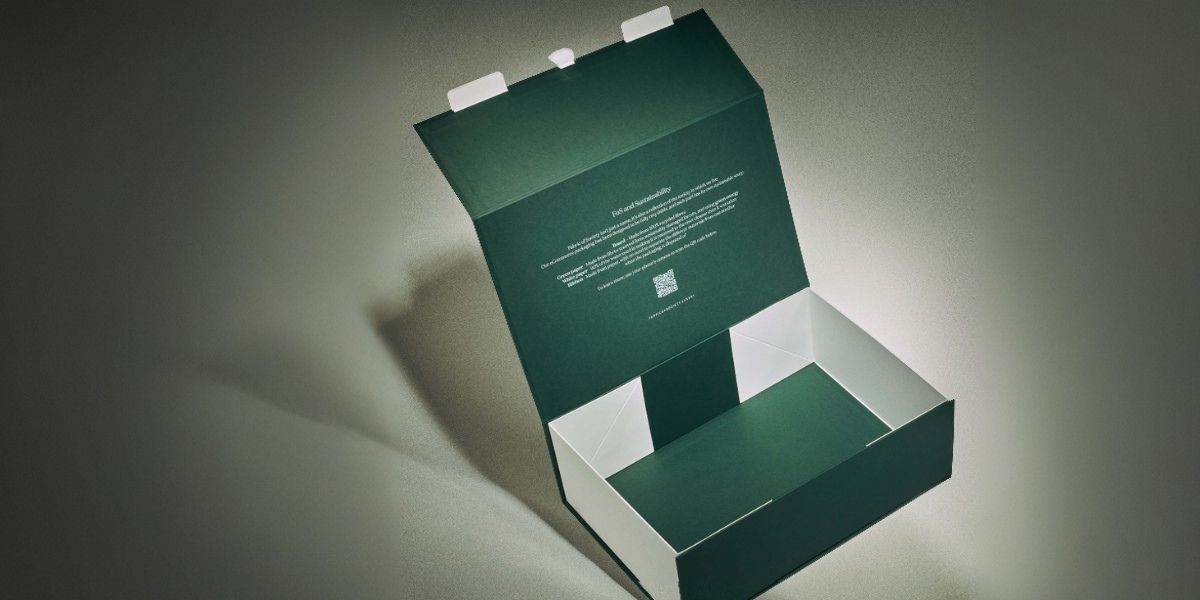By: Simon Woolford, Founder of SUM Design
In today’s luxury market, the question is no longer should your brand stand for something – it is what it stands for, and how clearly that is felt across every detail.
We are entering an era where the most successful luxury brands are not just beautiful – they are principled. For founders, that means navigating not only design decisions, but ethical ones too.
At SUM, we believe ethical luxury branding is no longer a niche. It is becoming the foundation of trust, differentiation, and long-term value. And perhaps most importantly, it is becoming a quiet expectation – unspoken, but noticed when missing.
The Myth of ‘Ethical = Worthy’
Ethics in branding is often misunderstood as something worthy, preachy, or restrictive. In reality, it is a source of creative clarity.
Whether it is transparency in sourcing, inclusivity in casting, or restraint in marketing, ethical choices build meaning. And in luxury, meaning is everything.
A well-considered ethical position can influence naming, tone of voice, packaging decisions, and digital presence. It adds depth. It elevates the brand beyond product.
Brands that are grounded in ethics tend to communicate less – but say more. They do not need to spell out their values on every page. The values are felt instinctively, through consistent creative direction, measured expression, and aligned partnerships.
Done well, ethics don’t limit creativity – they focus it.
For creative teams, an ethical foundation can actually serve as a north star – a filter through which every design, naming, and messaging decision becomes easier. If the brand stands for clarity and calm, the logo cannot scream. If it values conscious production, the website cannot overpromise or inflate.
Why It Matters More in Luxury
Luxury is built on perception. And perception is increasingly shaped by values – not just aesthetics.
The next generation of customers want to know:
- Why this brand exists
- Who made it
- How it behaves when no one is watching
This is not about performative messaging or empty positioning statements. It is about being intentional – and ensuring every detail, from design to delivery, reflects that.
The shift is particularly strong among younger audiences, who often expect their favourite brands to reflect their own beliefs. Luxury is no longer immune from this pressure – it is now expected to lead with conscience, not just craft.
We are seeing more premium founders take this seriously from the outset. Rather than ‘adding’ sustainability or ethics later, they are starting with it – designing their brand around a worldview rather than a product line.
This also allows luxury brands to futureproof. A clearly articulated position on ethics creates room to grow. It gives them something to stand on when trends move on.
A Strategic Lens on Ethics
When we work with early-stage or founder-led brands, we treat ethics not as a bolt-on, but a strategic lens. It is not something added at the end. It is there in the first workshop, the first naming round, the first set of brand principles.
For example, in recent work with fashion and lifestyle brands, we have explored:
- Craft-based manufacturing models over outsourced production
- Quiet launch strategies over volume-driven hype
- Supply chain transparency embedded in the brand story
These decisions create powerful, enduring alignment between what the brand believes and how it behaves – across every touchpoint. They also help clients avoid the trap of surface-level sustainability claims, and instead embed responsibility into the very DNA of the brand.
The outcome is a brand that not only looks elegant but feels honest – and that kind of resonance is difficult to fake.
In our experience, the most successful brands are those that begin by asking: what do we want to stand for, five years from now?
Ethics are not a trend to adopt. They are a lens to guide choices with longevity.
Ethical Doesn’t Mean Safe
Some of the strongest luxury brands today are those that have made bold, ethical choices:
- Slowing down production
- Refusing overexposure
- Elevating underrepresented voices
- Prioritising longevity over trends
This is not about risk avoidance. It is about taking the right risks – the ones that build long-term relevance.
There is often more strength in saying less, in doing one thing beautifully, or in choosing not to follow the noise of the industry. These are all ethical choices, and they create space for a brand to grow with integrity.
Luxury often rewards restraint. And restraint, when intentional, becomes its own statement.
In a saturated market, ethical restraint becomes a competitive advantage – not because it shouts louder, but because it signals confidence and trustworthiness.
Regional Relevance: UAE and KSA
Nowhere is this shift more visible than in the Middle East. In the UAE and Saudi Arabia, there is a new wave of premium founders looking beyond traditional luxury signals.
They are building brands with substance – where sustainability, local production, and intentional storytelling are central to their identity from the outset.
For these founders, ethical luxury branding is not about sacrificing aspiration. It is about redefining what aspiration means.
A restrained, responsible, values-led brand is not less desirable. In many cases, it is more magnetic. Because it reflects a mindset that is quietly shaping the next chapter of global luxury.
The regional market also favours brands with genuine provenance and commitment. With so many new launches, ethics provide a filter – a way for customers to recognise what feels real.
This presents a clear opportunity. Founder-led brands entering this space can shape not only how they look, but how they are remembered.
The Future Is Values-Led
Ethical luxury branding is not a trend. It is a quiet shift in what premium truly means.
And for the next generation of brands, especially those emerging from founder-led businesses or launching in new markets, this shift represents opportunity – to lead with clarity, build with purpose, and grow on substance, not noise.
Because the most desirable brands of tomorrow will not just be well made.
They will be well intentioned.
Explore how SUM helps founder-led brands build lasting presence through Luxury Brand Strategy, Fashion Branding, and Digital Identity.









